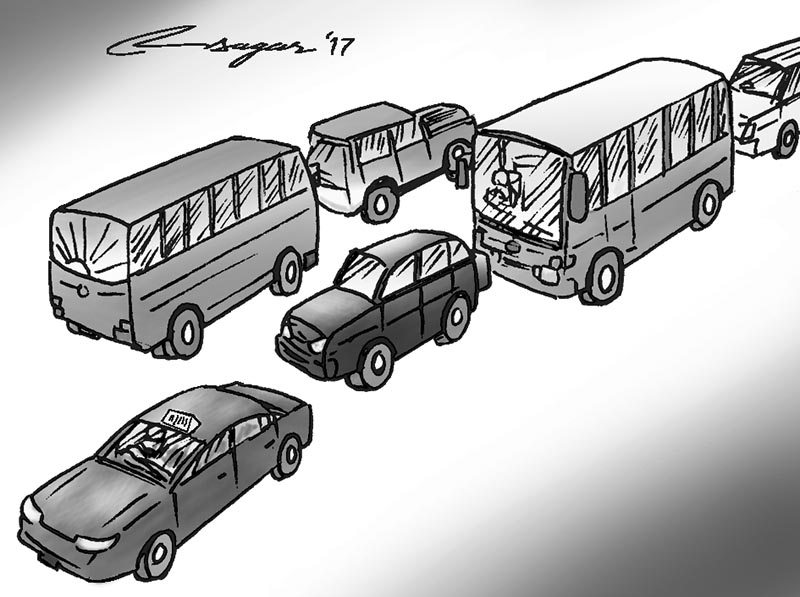Syndicate practice: Crony capitalism
Syndicate is a practice of forming alliance within a group of suppliers for fulfilling self-interest and restricting others from influencing price, quantity or both. Syndicate restricts even government, society and other competitors
Famous novelist Ayn Rand said “if parasitism, favouritism, corruption, and greed for the unearned did not exist, a mixed economy would bring them into existence”. Even if big political achievements were realized, economic development is still at nascent stage in Nepal, despite immense potentials. Fundamentals of market economy such as competition, free entry and exit, transparency and rule of law seem ruled out. Among others, syndicate and crony capitalism are the major ones.
Syndicate is a practice of forming alliance within a group of suppliers for fulfilling self-interest and restricting others from influencing price, quantity or both. Syndicate restricts even government, society and other competitors in the business of certain self-interest group through the rules, legislation, practice, lobbying, power or other mechanisms.
Restriction of incorporating new institution or business is a kind of syndicate itself. But there are many sectors where new institutions are not allowed to register, including, banks, cooperatives, schools, manpower. If we restrict the private sector to open new institutions, the existing one can form an alliance to syndicate both the price and quantity for their personal benefit. Furthermore, influential persons can lobby and pressurize the government not to allow new entrants in their profitable business. Such practice directly violates the market principle of growth.
The transport sector, which affects the daily livelihood of commoners, is the most syndicated sector in Nepal. Getting a new taxi is a dream for many youths as the government does not allow buying them whenever they want to. Getting route permit for an individual or a company is still a headache for many. Obtaining vehicle license is haphazard since long; and even moratorium on certain sectors such as heavy equipment. Government also determines the transport fare. These are the syndicates imposed by the government side. Even at the privatized sector, Nepal government is still fixing prices of many goods and services, which is against the norms of privatization. And with this loophole, private entities pressurize the government to fix the prices in their favour.
Forming different associations is also motivated for putting undue pressure to the regulator. An independent non-member private entity hardly exists in the market. This practice further promotes syndicate because an individual will not be independent in fixing prices and supply goods/services on his or her own interest. This has also brought unfair treatment and immunity to those who are supposed to go through legislative jurisdiction. Even in politics, there was a kind of syndication during the election, by forming different alliances.
In the market economy, government should have been an indifferent regulator and motivator for private sectors. But, if private sectors are able to change the rules, regulations, plans and polices in favour of them by using personal relationships and political links, this is often said to be crony capitalism. In crony capitalism, private providers use personal relation and power rather than government system and administration benefiting a few. Nepal also witnesses change in the government structure, establishment of new institutions, getting government contracts through lobbying, manipulations of employees through unfair transfer, placement and promotions among others, for the private benefits.
In Sri Lanka, Mattala Rajapaksa International Airport is the “world’s emptiest international airport”, says Forbes magazine. Although the plan was to make it a second international airport to manage heavy traffic, it is instead being used as a tourist destination to make a side trip from the nearby wildlife parks. Likewise, Mozambique made Nacala International Airport “the luxurious ghost airport in one of the world’s poorest countries”, mentions BBC. Even if it was expected to become the regional transit hub and second busiest, the airport is now hardly operating at 4 percent capacity. The $200 million for it should have been used elsewhere. The examples of these two airports may be enough to understand crony capitalism.
It is realized that there would be issue of country, company and even location of the project rather than cost and benefit, socio-economic impacts and viability, while allowing big foreign investments in Nepal. For instance, we are having international airports in Bhairahawa and Pokhra within a few years. Without modernizing and extending within the available territory at Kathmandu airport, thinking about another big international airport in Nijgadh might be like the case of Sri Lanka and Mozambique.
As Rghuram Rajan says the populist nationalism is the first step of crony capitalism, the development efforts that promotes crony capitalism and protects the syndicate in the name of people and populism is never sustainable. Such behaviour may seem the takeoff of developments in the short-run and heavy costs over the long-run. Thus, legal and practical end of both syndicates and crony capitalism is a necessary condition for sustainable development. Nonetheless, if it is further protected citing the reforms, there would be a chance of losing even the existing benefits of market economy.
Bhatta is deputy director, Nepal Rastra Bank, Research Department






